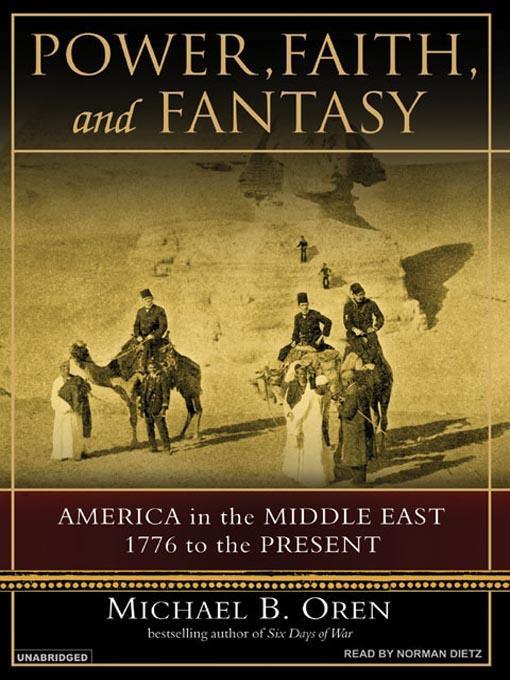
Power, Faith, and Fantasy
America in the Middle East, 1776 to the Present
فرمت کتاب
audiobook
تاریخ انتشار
2007
نویسنده
Norman Dietzناشر
Tantor Media, Inc.شابک
9781400174447
کتاب های مرتبط
- اطلاعات
- نقد و بررسی
- دیدگاه کاربران
نقد و بررسی

The remarkable panorama of U.S. involvement in the Middle East is effectively delivered. Beginning with the singular figure of explorer John Ledyard, the author describes a popular fascination with the Orient, as the Middle East was then called, a fascination most often shattered when encountering the real thing. From missionaries to educators to physicians to presidents, Oren details the personalities of those who ventured East and the social environments each encountered in the various eras described. Norman Dietz plows through the reading with a slow cadence, only occasionally fumbling over a phrase in Hebrew or another of the various languages. In truth, he often sounds tired, like a weary grandfather, but his voice maintains a kindly and pleasant expression. D.R.W. (c) AudioFile 2007, Portland, Maine

November 20, 2006
In this engaging if unbalanced survey, the author of the acclaimed Six Days of War
finds continuity in U.S. relations with the Middle East from the early 19th-century war against the Barbary pirates to today's Iraq war. As America's power grew, he contends, strategic considerations became complicatedby the region's religious significance, especially to the Protestant missionaries whose interests drove U.S. policyin the 19th century and who championed a Jewish state in Palestine long before the Zionist movement took up that cause. Meanwhile, Oren notes, Americans' romantic fantasies about the Muslim world (as expressed in Mideast-themed movies) have repeatedly run aground on stubborn, squalid realities, most recently in the Iraq fiasco. Oren dwells on the pre-WWII era, when U.S.-Mideast relations were of little significance. The postwar period, when these relations were central to world affairs, gets shoehorned into 127 hasty pages, and the emphasis on continuity gives short shrift to the new and crucial role of oil in U.S. policy making. Oren's treatment views this history almost entirely through American eyes; the U.S. comes off as usually well intentioned and idealistic, if often confused and confounded by regional complexities. Oren's is a fluent, comprehensive narrative of two centuries of entanglement, but it's analytically disappointing. Photos.

























دیدگاه کاربران